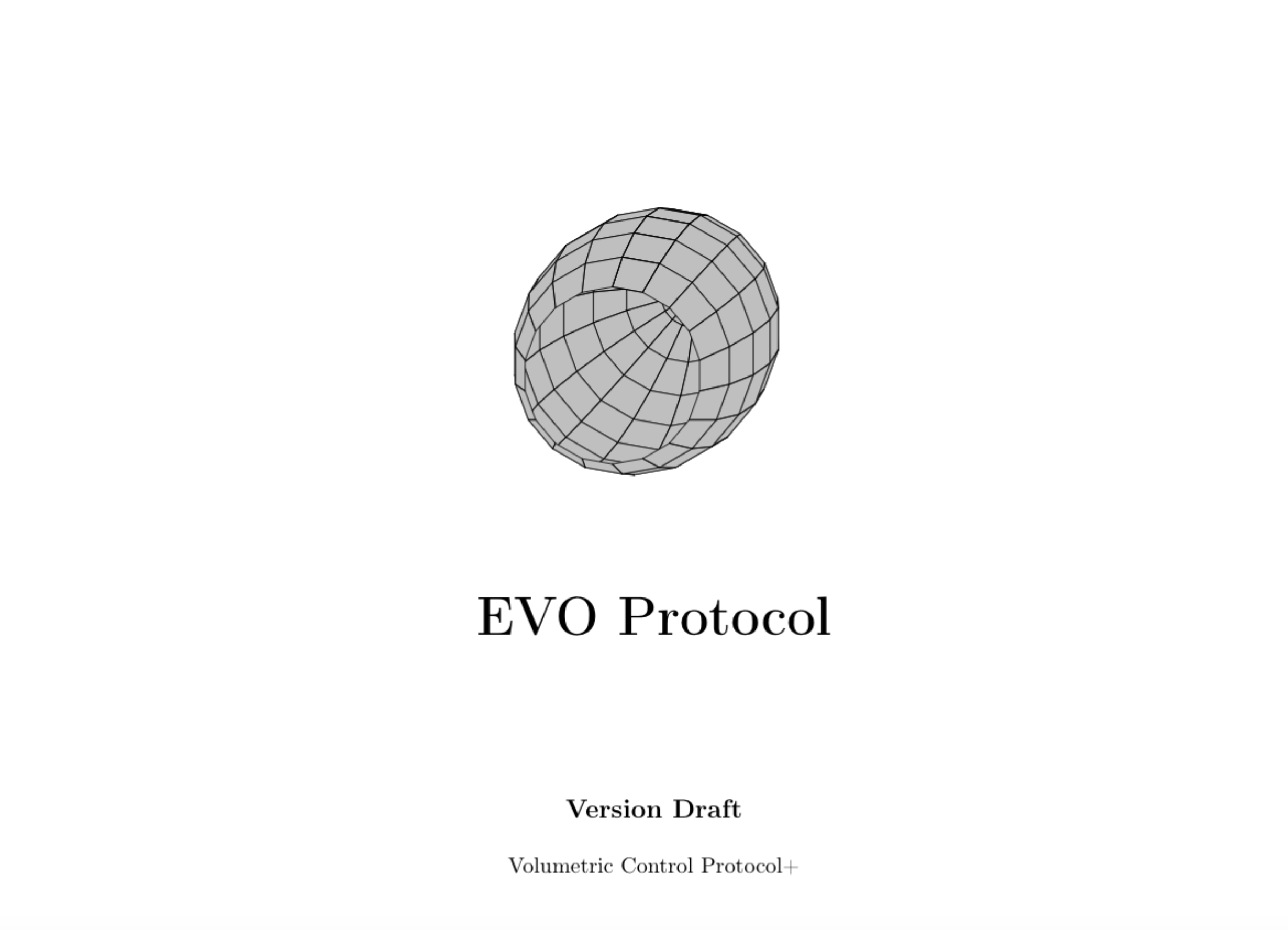Ecosyste.ms: Awesome
An open API service indexing awesome lists of open source software.
https://github.com/sambacha/evo-whitepaper
EVO Protocol Whitepaper
https://github.com/sambacha/evo-whitepaper
blockchain defi ethereum evm protocol quantitative-finance smartcontract solidity trading whitepaper
Last synced: about 2 months ago
JSON representation
EVO Protocol Whitepaper
- Host: GitHub
- URL: https://github.com/sambacha/evo-whitepaper
- Owner: sambacha
- License: other
- Created: 2020-09-20T08:42:09.000Z (over 3 years ago)
- Default Branch: master
- Last Pushed: 2021-05-17T00:50:28.000Z (about 3 years ago)
- Last Synced: 2024-02-01T00:20:32.892Z (5 months ago)
- Topics: blockchain, defi, ethereum, evm, protocol, quantitative-finance, smartcontract, solidity, trading, whitepaper
- Language: TeX
- Homepage: https://sambacha.github.io/evo-whitepaper/
- Size: 3.54 MB
- Stars: 4
- Watchers: 3
- Forks: 2
- Open Issues: 2
-
Metadata Files:
- Readme: README.md
- License: LICENSE
Lists
- ultimate-defi-research-base - EVO Protocol: a Volumetric time based stabilizing pool to make any asset price-stable - Author demonstrates a (Stable-Coins:)
README

| EVOProtocol | Embededd Volumetric Optionality Protocol | v1.0.0+3 |
| ----------- | ---------------------------------------- | -------- |
## Embedded Volumetric Optionality Protocol
### Note
UniswapV3 Integration Section To Be Released
### Abstract
EVO Protocol is a dynamically adjusting ERC-compatible protocol that adjusts based on _volume_
EVO tokens are minted and burned on-demand by deposit and withdraw operations directly via the contract.
> Initiated Protocol Operations
- Deposit
- Withdraw
- Transfer
These operations contribute to `transfer rates`.
`Transfer rates` are tracked both in `aggregate` and `individually` (i.e. per address).
The `period of time` for tracking is the last `25 days`.
### Time and Period
> [V2 Upgrade will include upgrading the time and date to a new libray](https://github.com/bokkypoobah/BokkyPooBahsDateTimeLibrary)
Time and Period should be defined on a `per market` basis. Meaning you should choose what is computed to be the _optimal_ time period based on historical analysis.
Multiples of 4,6, etc are suggested
- For Example
`25` days has`36000 minutes`, which divided by `block_time=4` gives `9000`
GasEVO is determined both in `aggregate` (dynamically) and `individually` for each address based on transactional (i.e. volumetric transactional information) stored and updated through the smart contract during the previous transactions.
All three operations such as `deposit`, `withdraw` and `transfer` can equally contribute to the `transfer` rates that are tracked totally and individually(as per holder) by the smart contract for the period of the last `25 days`.
The token price is determined dynamically(and individually for each holder) based on the information stored or updated in the smart contract during previous transactions:

## Utility
> Note: This is specific to the implementation based on the reference specification , as described in the whitepaper (./latex/\*_/_.tex)
Given enough liquidity, `GasEVO` has a way to compute the `exchange rate` towards the base instrument (ETH).
Like this, movements of the bigger or significant volumes can be interpreted as market trends (i.e. `gwei` pricing.)
By utilizing small volume movements and disincentivizing the larger ones without compensation to holders every exceeding `bulge bracket` trade of the token is tracked by the smart contract and higher "transactional" fees are applied (re: withdraw, or 'consumption').
> Note: We describe `transactional` fees sometimes as an `interest` fee. This language is marked as _depreciated_ as this confers and/or implies a rate of return that is somewhat deterministic, this however is not the case per se as it is entirely possible that all trades could be below the `transfer rate` during a period/epoch.
Transference of funds _below_ daily volume threshold does not impose any interest fee.
When the threshold has been exceeded some percentage of tokens gets burned, for the transfer, for `deposit` or for `withdraw` of the base instrument (ETH).
Thresholds are tracked individually per address as the average rate and have a function by which they operate on.
## Architecture & Engineering
Discussed in **chapter 2**
## Safeguards and Tooling
Discussed in **chapter 3**
## Security
please contact: ``for bugs/security issues, thank you.
## License
SPDX-License-Identifier: SSPL-1.0